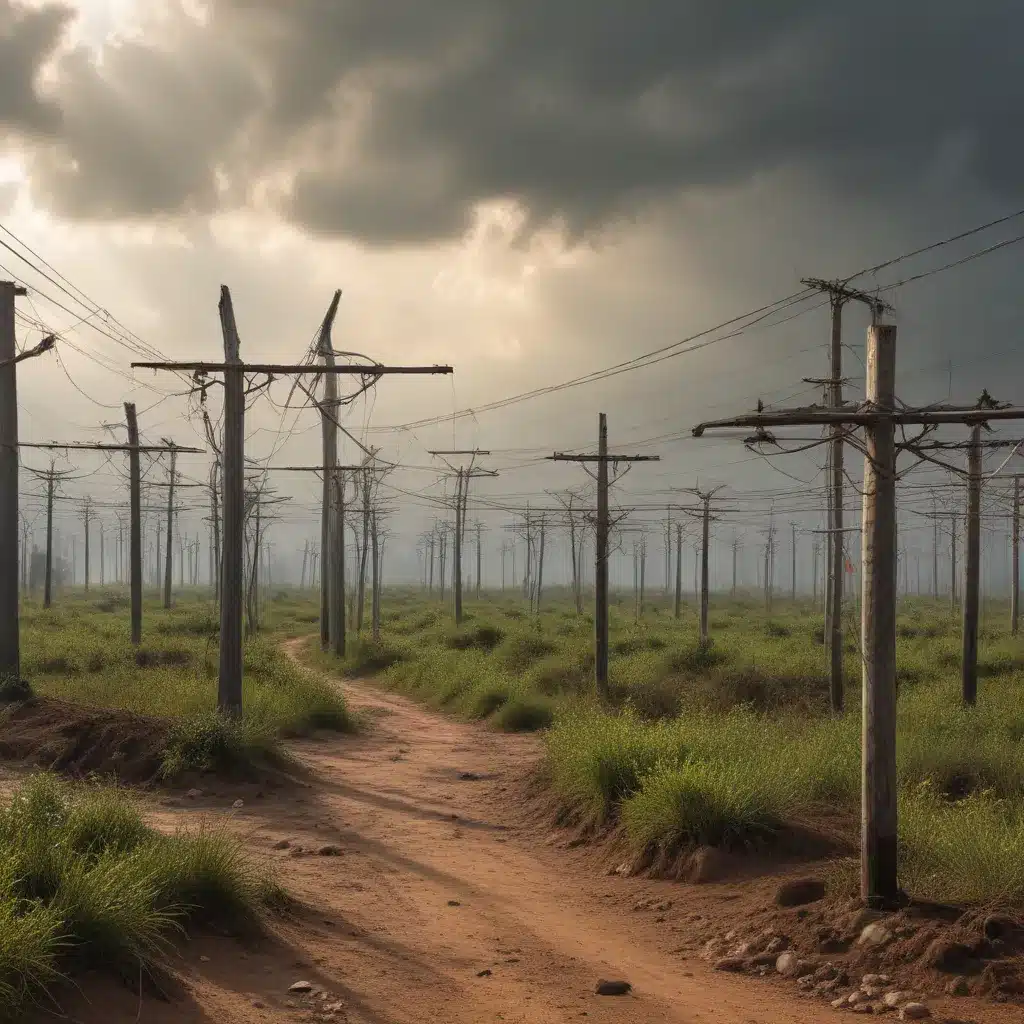
In an era marked by growing climate volatility and the persistent threat of cyber-attacks, traditional centralized power grids are facing unprecedented challenges. As extreme weather events become more frequent and the risk of targeted disruptions rises, it’s time to consider alternatives that enhance resilience, security, and sustainability. One such alternative is the shift toward decentralized energy systems.
Decentralized energy systems, often referred to as distributed energy resources (DERs), are small-scale power generation technologies located close to the point of use, rather than at a large, centralized plant. These systems include solar panels, wind turbines, battery storage, microgrids, and even combined heat and power (CHP) systems. Unlike traditional grids, which rely heavily on a few large power plants, decentralized systems harness a diverse array of energy sources dispersed across various locations, making them inherently more flexible and resilient.
Resilience and Reliability
One of the most compelling arguments for decentralized energy systems is their potential to enhance resilience in the face of growing threats. Traditional power grids are vulnerable to both natural disasters and human-made attacks. A single cyber-attack or a major storm could cripple large swaths of the grid, leaving millions without power for extended periods. Decentralized systems, however, are less susceptible to these disruptions due to their distributed nature. With multiple small-scale energy sources, the risk is spread across a wider network, reducing the likelihood of a single point of failure. Microgrids, for instance, can operate independently from the main grid during outages, providing critical services with a reliable power supply. This decentralized approach not only supports faster recovery after a disruption but also ensures continuous power supply to essential facilities, such as hospitals and emergency response centers, during crises.
Another key advantage of decentralized energy systems is their ability to enhance energy security. Traditional grids often rely on a narrow range of energy sources, which can be subject to market volatility, geopolitical tensions, and supply chain disruptions. In contrast, decentralized systems draw from a wide variety of local resources—solar, wind, bioenergy, and even small-scale hydroelectric power—thus diversifying the energy mix and reducing dependency on any single source. This diversification mitigates risks associated with fuel shortages or price spikes, ensuring a more stable energy supply. Moreover, decentralized systems are often supported by smart technologies that allow real-time monitoring and management of energy flows, further enhancing their resilience against both physical and cyber threats.
Environmental and Economic Benefits
Decentralized energy systems also play a significant role in driving sustainability and reducing carbon footprints. Traditional grids are typically powered by fossil fuels, contributing significantly to greenhouse gas emissions. By contrast, decentralized systems often integrate renewable energy sources, like solar and wind power, which produce zero emissions. This shift is vital in the global effort to combat climate change and transition to a low-carbon economy. Moreover, decentralized systems reduce transmission losses, which can account for up to 8% of the total electricity generated. By generating power closer to where it’s consumed, decentralized systems improve overall energy efficiency, further contributing to sustainability goals.
Decentralized energy systems offer more than just technical and environmental benefits; they also empower local communities. By fostering local energy production, these systems reduce dependence on distant utilities, enabling communities to take greater control over their energy needs. This local autonomy can stimulate economic development by creating jobs in manufacturing, installation, and maintenance of decentralized energy technologies. Furthermore, decentralized systems often lead to lower energy costs for consumers. When communities generate their own electricity, they can bypass traditional utility companies and avoid some of the costs associated with transmission and distribution. This can be particularly beneficial in remote or underserved areas, where access to reliable and affordable energy has historically been limited.
Regulatory and Policy Considerations
Governments and regulatory bodies must recognize the value of decentralization and create frameworks that encourage its growth. This includes incentives for renewable energy installations, streamlined permitting processes for microgrids, and investments in grid modernization. On the technological front, advancements in energy storage, smart grid infrastructure, and digital management systems will play a pivotal role in accelerating the adoption of decentralized energy.
While decentralized systems provide numerous benefits, bulk energy systems will remain essential for the foreseeable future. Large-scale power plants offer a level of reliability and capacity that is difficult to match with smaller, distributed sources. For example, industrial sectors and densely populated urban areas often require a steady and large supply of power that decentralized systems may not always be able to meet, especially during high-demand periods. Moreover, bulk energy systems serve as an important redundancy mechanism. In case of widespread failure or natural disasters that disrupt decentralized systems, large-scale plants can step in to provide power.
As decentralized energy systems grow, the role of bulk systems may evolve. Some experts suggest that in the future, decentralized systems could become the primary source of daily energy supply, while bulk systems might be reserved for emergencies or as backup power during peak usage times. This shift marks a significant change in energy infrastructure, with decentralized systems providing most of the power and bulk systems ensuring resilience during crises or extreme demand. However, maintaining both systems will be critical to ensuring a flexible, resilient, and reliable energy supply in the future.
The transition toward decentralized energy systems is not without its challenges. High initial costs, the need for complex grid management, and cybersecurity concerns must be addressed. Yet, as we adapt and invest in these systems, decentralized energy can complement traditional grids, offering a balanced approach that strengthens our overall energy resilience. The future is decentralized, and by embracing this shift, we can shape a more resilient and sustainable energy landscape for Europe and beyond. To learn more, visit europeanfutureenergyforum.com.







